MARKET OVERVIEW
The Asia Pacific immunoassay and molecular diagnostics market is an emerging niche within the healthcare sector, covering immunoassay techniques as well as molecular diagnostics. Immunoassays are tests that use these techniques to detect or quantify small, specific proteins, hormones, or antibodies in biological samples in clinical laboratories for the purpose of diagnostics. Molecular diagnostics, on the other hand, utilizes techniques that research genetic material, which could either be DNA or RNA, for diagnosing and tracking various diseases. Together, these technologies play an important role in the detection, diagnosis, and monitoring of many kinds of medical conditions, including infectious diseases, cancers, and autoimmune disorders.
The Asia Pacific Immunoassay and Molecular Diagnostics market has recently enjoyed tremendous growth, largely due to better healthcare infrastructure improvements and technological innovations. Immunoassays have become highly sensitive and specific, thus making them more adept for the detection of the earliest and most accurate manifestations of the disease. The growth of these technologies is associated with the evolution of molecular diagnostics, as newer technology, such as PCR and NGS, results in increasingly precise diagnostic capabilities. Such an expansion is also expected for the Asia Pacific region, driven by an increasing demand for accurate, timeliable diagnostics among developed and developing countries.
Immunassy and molecular diagnostics are progressively applied in routine clinical practice. This trend will probably push further the utilization of such technologies in different health care facilities, from large hospitals and to smaller clinics. The Asia Pacific Immunoassay and Molecular Diagnostics market will see broader utilization in oncology where molecular diagnostics are used to personalize treatments for genetic profiles and infectious disease testing, though subsequent to the COVID-19 pandemic highlighting the importance of fast and reliable testing, is likely to continue post the pandemic.
Besides the clinical applications, research activities in academic and industrial laboratories are most likely to drive the Asia Pacific Immunoassay and Molecular Diagnostics market forward. Most of the research institutions in the region are now focused on developing novel biomarkers and diagnostic platforms that will most likely upgrade the capacities of immunoassays and molecular diagnostics. Along with this trend, genomics and proteomics research is continuously emerging, and therefore, more advanced diagnostic technologies will be required in the future, thereby paving a huge way for further expansion in the market.
The Asia Pacific varies tremendously in their healthcare infrastructure and the accessibility of advanced diagnostic technologies. The front runners among such countries include Japan, China, South Korea, and Australia, where new immunoassay and molecular diagnostics technologies are becoming widely accepted. These countries have huge investments in healthcare, research, and development. This is most likely to aid the strengthening of market positions for these countries. Other countries in this region will continue to gradually increase investment in healthcare, making these diagnostic tools increasingly adopted in these countries.
The Asia Pacific Immunoassay and Molecular Diagnostics market would continue to evolve as healthcare systems across the Asia Pacific region adapt to changing patient needs and new challenges. A strong partnership for driving forward development and adoption of innovative diagnostic technologies between governments, health care providers, and private sector companies is expected in this regard. Growing attention toward precision medicine and preventive health care is expected to make both immunoassay and molecular diagnostics integral to the patient-centric approach in the Asia Pacific in the foreseeable future.
Asia Pacific Immunoassay and Molecular Diagnostics market is estimated to reach $23705.0 Million by 2031; growing at a CAGR of 9.4% from 2024 to 2031.
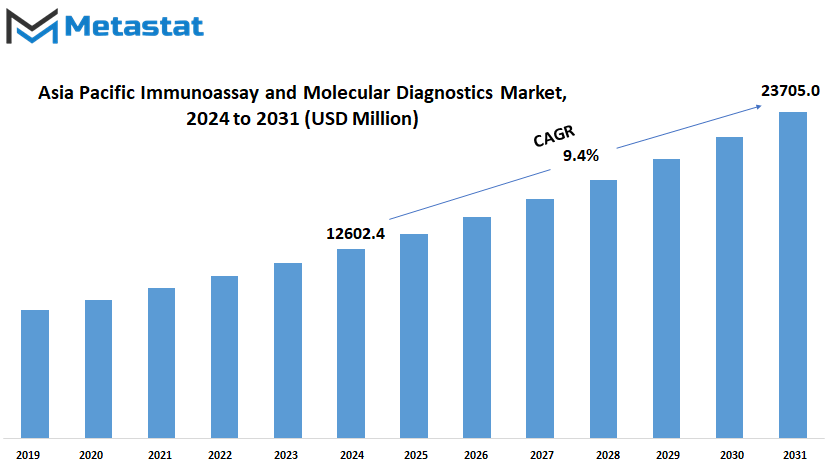
GROWTH FACTORS
The important factors driving growth in the Asia Pacific Immunoassay and Molecular Diagnostics market are as follows: There are critical chronic diseases, such as cancer, diabetes, and cardiovascular conditions, which are on the rise. As health issues become more prevalent, there is a corresponding need for high-tech diagnostic tools and reagents, including immunoassays and molecular diagnostics. These technologies offer accurate and high-speed detection and monitoring of diseases; therefore, they are essential in modern healthcare environments. Furthermore, the growing interest in early disease detection and preventive health care will also play an important role in increasing the market.
The other driving forces are constantly improving technology. Recent developments in diagnostic devices and methods have made immunoassays and molecular diagnostics more sensitive, fast, and cost-effective. This is especially the case in the Asia Pacific region, as infrastructure in healthcare is steadily on the rise there. It is easier to come up with high-quality services by healthcare providers using modern diagnostic solutions, and eventually, this contributes to market growth. There is also personalized medicine, tailored treatments for an individual patient according to his genetic constitution. This will drive the uptake of molecular diagnostics even more because many of them would be integral in pointing out specific genetic markers for a disease.
However, certain challenges could be obstacles to ensure the growth of the market. Due to the high prices of advanced diagnostic tools, their adoption may be limited, especially in developing countries in the Asia Pacific. Many times, healthcare facilities will not have the financial capability and infrastructure to realize fully these technologies. This is further worsened by a lack of skilled professionals to use and interpret complex diagnostic tools for patients.
Despite these challenges, opportunities are still robust for the Asia Pacific Immunoassay and Molecular Diagnostics market. Government initiatives undertaken to improve the healthcare systems and increase diagnostics access will continue to alleviate the challenges that are currently being faced. As costs come down through research and development and accessibility is improved, expansion is sure to grow in this market. In other words, the long-term growth in demand for immunoassays and molecular diagnostics shall be driven by the future of preventive healthcare and personalized medicine. Thus, the Asia Pacific market shall be the most developed in the world’s health care.
MARKET SEGMENTATION
By Type
This Asia Pacific Immunoassay and Molecular Diagnostics market is expected to demonstrate notable growth in the future. The growth of these Immunoassay and Molecular Diagnostics markets is driven by developments in medical technology, increased healthcare needs, and the growing prevalence of chronic diseases within the region. Immunoassay test: This technique or technology is used to detect specific proteins or antibodies in a sample. It plays a very important role in the diagnosis of diverse diseases, such as infections and cancers. Molecular diagnostics is capable of working more specifically toward the detection of genetic material and thus it assesses disease in the molecular level for early and accurate diagnosis.
Expansion in molecular diagnostics is highly likely to be driven by the growing need for personalized medicine, with tailored treatments designed according to an individual’s unique genetic makeup. Health care providers are seeking novel approaches in treating patients with more accuracy, and molecular diagnostics will be key to identifying appropriate treatment methodologies. This wave towards personal care will open even more avenues for innovation in the Asia Pacific Immunoassay and Molecular Diagnostics market.
Another growth factor for the future in this market is laboratory automation, which is on the rise. Automated systems are now able to process enormous numbers of tests rapidly and efficiently, and minimize errors related to humans while maximizing the reliability of test results. This becomes inevitable, considering a region like Asia Pacific, which is so culturally diverse and populous, and has healthcare systems under constant pressure to deliver timely and accurate diagnoses.
The future investment in the Asia Pacific market of Immunoassay and Molecular Diagnostics is likely to be channeled towards the research and development activities held by various companies and governments, looking into improving health care outcomes. In general, future investments in this line will aid in developing new diagnostic tests to diagnose diseases earlier and more accurately; hence, better patient care throughout the region. Pharmaceutical and diagnostic companies’ propensity for continuous collaborative efforts with healthcare providers will continue to push the market, further bringing in new innovative diagnostic tools.
It can be understood that the Asia Pacific Immunoassay and Molecular Diagnostics market is on the rise, with growth expected in the demand for advanced healthcare solutions. The trends, however, indicate the acceptance of enhanced access to personalized medicine through early diagnosis through improved technology, along with an edge in playing a vital role in shaping the future of healthcare for the Asia Pacific region.
By Application
Considering the pace of innovation in medical technology, and the demand for more precise diagnostic tools in Asia Pacific, the Asia Pacific Immunoassay and Molecular Diagnostics market is likely to grow over the next few years. Due to this, it becomes critical to understand that the applications of the Asia Pacific Immunoassay and Molecular Diagnostics market involve infectious diseases, oncology, cardiology, autoimmune diseases, endocrinology, blood screening, prenatal testing, personalized medicine, and others.
Infectious diseases have remained as one of the significant burdens on health and continue to be so with new emerging pathogens and concerns of pandemics. The Asia Pacific region has been the most sensitive to outbreaks, and these have presented increasing demands for faster, more reliable diagnostic solutions. Immunoassays and molecular diagnostics are rapidly becoming tools in the early detection of diseases and easy management, thus making it possible for healthcare providers to take quick actions. This should therefore lead to more healthful outcomes and fewer epidemics of infectious diseases.
Oncology is another key application that is making substantial strides. With the escalating cancer cases in the region, there is a high demand for better diagnostics to determine the stages of cancer at the earliest possible time. There has been an increased use of immunoassays and molecular diagnostics to determine the existence of markers associated with cancer and to tailor therapy for a patient. As the technology advances, future possibilities of cancer treatments in the Asia Pacific region are going to be more precise and based on patient-centric approaches.
Cardiology and autoimmune conditions are the other areas where immunoassay and molecular diagnostics are advancing. The early diagnosis of any heart-related problem or autoimmune disease reduces the severity of treatment. As personalized medicine is becoming a part of healthcare systems, these diagnostics will provide targeted plans of treatment to patients, which will further enhance their quality of life.
Prenatal testing and blood screening should also continue to be more in demand over the years ahead. Both can detect genetic anomalies and ensure the health of both mother and baby. The greater awareness and access that occurs will translate into wider use across this region and improved health outcomes among mothers and infants across this region.
Thus, the Asia Pacific Immunoassay and Molecular Diagnostics market will grow, with a wide range of application areas within healthcare. Future innovations promise much higher promises as regards more definitive detection of diseases, along with tailor-made solutions for their treatment to improve patient care throughout this vast geography.
By End User
The Asia Pacific Immunoassay and Molecular Diagnostics market is considered to expand rapidly in the following years. The requirements for precision and speed in healthcare diagnostics have led to high demand, and the continuous development of technology has also been a driving force in this expansion. Immunoassays and molecular diagnostics are indispensable for diagnosing diseases and monitoring them at an early stage, which makes the treatments more effective. With improvements in the infrastructure of healthcare globally, and more particularly, in the Asia Pacific region, the usages of these technologies are more likely to be increased.
Hospitals and clinics constitute a significant portion of the end-users. It is only through these high-tech diagnostic instruments that they can achieve healthier patient outcomes by delivering timely diagnoses that are accurate. Immunoassays are widely used in these centers to aid the measurement of the presence or absence of substances including proteins and hormones, in diagnosing a range of diseases from infections to cancers. Molecular diagnostics are even more sensitive, capable of detecting genetic mutations as well as other molecular markers that can lead specifically to some disease conditions. It would be much more integral part of daily work in the hospitals and clinics as the service providers keep seeking more personal and potent treatment options.
In terms of market, diagnostic laboratories also share quite a lion’s share since they perform other highly specialized testing types. As the early detection has been found to play a such important role, many labs embrace immunoassay and molecular diagnostic tools which provide enhanced speed and accuracy in tests that are conducted. Later, advanced diagnostic techniques may be developed, and the patients would require more highly sophisticated testing services. The diagnostic labs are probably going to expand their capabilities in accordance with this increase in demand. Advancements in these areas will not only benefit the patients but also the Asia Pacific Immunoassay and Molecular Diagnostics market in general.
Other market participants include research institutions and pharmaceuticals that apply these diagnostic tools for drug development and research purposes. Since precision medicine is gradually becoming the necessity of the hour, research and pharmaceutical organizations will surely become heavy users of advanced diagnostic technologies and, in consequence, will drive the growth of the market.
Overall, the Asia Pacific Immunoassay and Molecular Diagnostics market is going to experience constant evolution, with hospitals, clinics, diagnostic labs, and other end users holding the most crucial roles In its overall growth. The future definitely promises even more sophisticated technologies that will benefit not only the healthcare providers but also the patients across the region.
|
Report Coverage |
Details |
|
Forecast Period |
2024-2031 |
|
Market Size in 2024 |
$12602.4 million |
|
Market Size by 2031 |
$23705.0 Million |
|
Growth Rate from 2024 to 2031 |
9.4% |
|
Base Year |
2022 |
|
Regions Covered |
North America, Europe, Asia-Pacific Green, South America, Middle East & Africa |
REGIONAL ANALYSIS
Thus, this segment of the Asia Pacific Immunoassay and Molecular Diagnostics market is likely to rise enormously in the near future with increased demand in the field of medical technology and constantly developing infrastructure for healthcare. Geographically, it is segmented by regions such as North America, Europe, and the Asia-Pacific. The Asia-Pacific region is further divided by the individual countries-India, China, Japan, South Korea, and other regions within the area-that reflect the increasing importance within the global market for medical diagnostics.
The countries that shall be pivotal in growing this market are specifically India and China from the Asia-Pacific region. Both countries have had rapid economic growth coupled with development of increased access and healthcare service provision. Yet another result is expanded demand for advanced diagnostic technologies, like immunoassay and molecular diagnostics. An increased focus on early disease diagnosis and a growing incidence of chronic diseases, such as cancer and diabetes, are also driving market growth in these countries. As healthcare systems in these countries continue to develop, so will these trends, and governments will continue to invest in better diagnostic tools in support of more accurate and timely treatments.
Japan and South Korea, which possess fully developed healthcare systems, are also among the emerging markets. There are well-developed medical industries in these two countries, which have research and development capabilities contributing to the development and practical application of state-of-the-art diagnostic tools. The populations in these countries are aging, which increases the demands for diagnosing diseases related to age more efficiently. As such, nations in this region are expected to promote their medical fields and, subsequently, the rate of adoption of technologies such as immunoassay and molecular diagnostics in the Asia Pacific Immunoassay and Molecular Diagnostics market.
The remaining facets of the Asia-Pacific region, including emerging markets in health, are also slated for growth. They would not have all the supportive infrastructures of a Japan or South Korea but will be developing infrastructures with enhanced investments in healthcare, thereby indicating excellent future prospects.
Asia Pacific Immunoassay and Molecular Diagnostics Market Outlook: The Asia Pacific Immunoassay and Molecular Diagnostics market too is growing due to technological advancements and the increasing need for healthcare services in the region. As the countries develop and pay more attention to the health infrastructure, the demand for more advanced and efficient diagnostic equipment will only enhance, and hence, it is a crucial market that should be followed closely over the coming years.
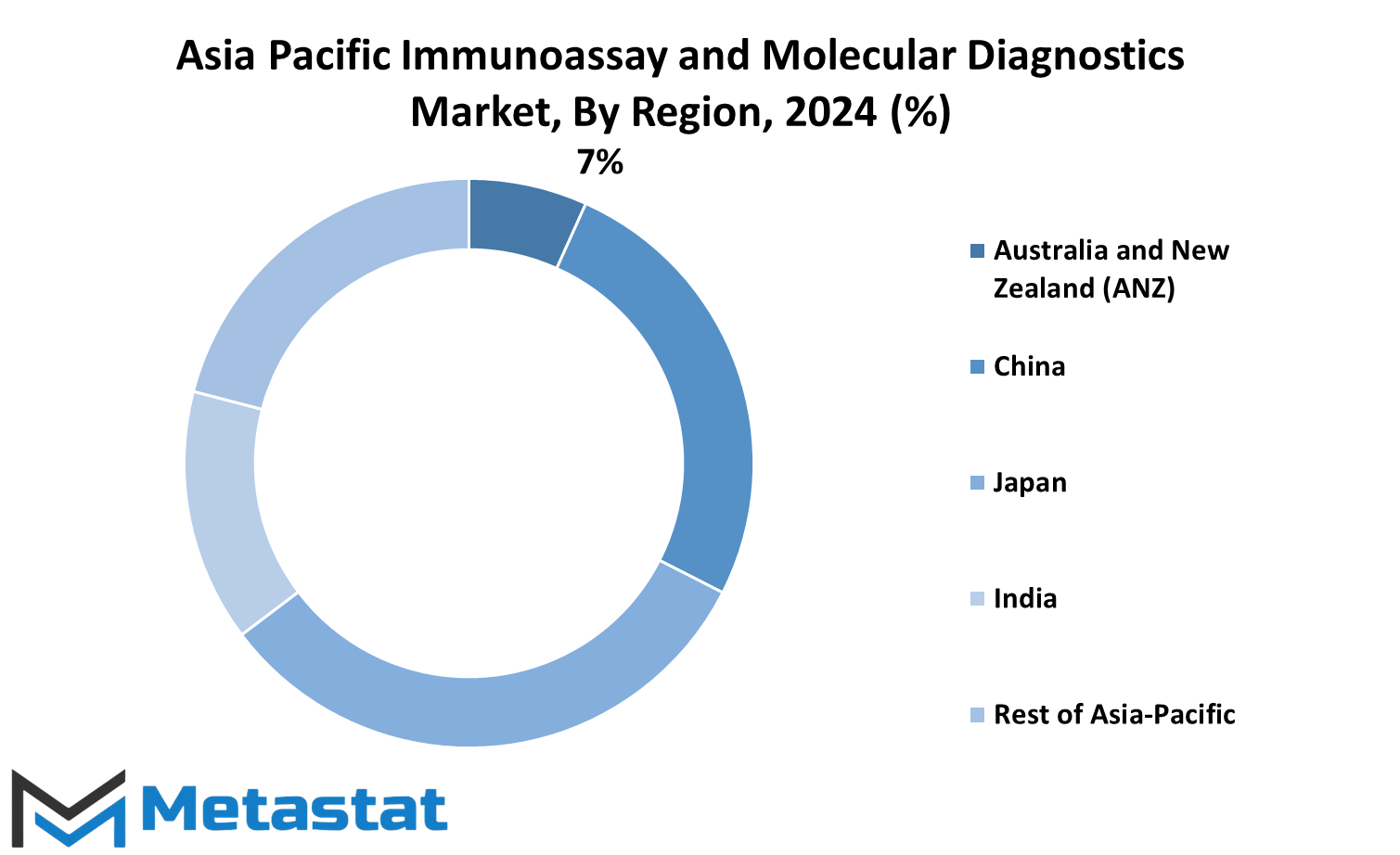
COMPETITIVE PLAYERS
The Asia Pacific Immunoassay and Molecular Diagnostics market is growing rapidly with future prospects, propelled mainly by rapid advancements in medical technology and healthcare demands across the region. There is a sharp rise in diagnostic requirements caused by the increasing prevalence of chronic diseases, infectious diseases, and an aging population. Immunoassay and molecular diagnostics are now indispensable tools in modern health care; thus, early and accurate diagnosis of several conditions will be possible.
Continuous growth in the Asia Pacific region has increased the focus on developing healthcare infrastructure and increasing access to high-end diagnostic solutions. This, in turn, increases the demand for immunoassay and molecular diagnostics technologies. Because they yield accurate results within a shorter period of time, these technologies are indispensable for effective disease management. In addition, the research and development process by market leading companies is anticipated to venture out with more advanced and affordable diagnostic equipment in the next few years.
In addition, "key players in Asia Pacific Immunoassay and Molecular Diagnostics market, including Abbott Laboratories, Agilent Technologies, Inc., Becton, Dickinson, and Company (BD), bioMérieux SA, and Bio-Rad Laboratories, Inc. are constantly trying to enhance their product offerings.". The companies have been seen to fine-tune the diagnostic capability and scale up the technology towards a large number of diseases. Collaborations and partnerships between industry leaders and healthcare institutions are also expected to play an important role in advancing diagnostic capability.
Coming near in the future, Asia Pacific may place prominence on personalized medicine and precision diagnostics. Molecular diagnostics will have a great role as identification of specific genetic markers and mutations identify certain treatments for patients; this will somewhat lessen pressure exerted on healthcare systems by early interventions.
With the integration of advanced technologies such as artificial intelligence and automation into diagnostic devices, immunoassay and molecular diagnostics will be even more efficient and accessible. Therefore, Thermo Fisher Scientific Inc., Hologic, Inc., and Siemens Healthineers AG should be well-positioned to lead the way in the region by providing solutions that better meet the surging need for rapid, reliable, and cost-effective diagnostics in Asia Pacific.
Sustained research, development activities, and strategic alliances, the Asia Pacific market for immunoassay and molecular diagnostics will experience positive growth and transform the way disease is diagnosed and treated in this region.
Asia Pacific Immunoassay and Molecular Diagnostics Market Key Segments:
By Type
- Immunoassay
- Molecular Diagnostics
By Application
- Infectious Diseases
- Oncology
- Cardiology
- Autoimmune Diseases
- Endocrinology
- Blood Screening
- Prenatal Testing
- Personalized Medicine
- Others
By End User
- Hospitals and Clinics
- Diagnostic Laboratories
- Others
Key Asia Pacific Immunoassay and Molecular Diagnostics Industry Players
- Abbott Laboratories
- Agilent Technologies, Inc.
- Becton, Dickinson, and Company (BD)
- bioMérieux SA
- Bio-Rad Laboratories, Inc
- Charles River Laboratories
- DiaSorin S.p.A.
- F. Hoffmann-La Roche Ltd.
- Hologic, Inc.
- Illumina, Inc.
- Siemens Healthineers AG
- Sysmex Corp.
- Thermo Fisher Scientific Inc.
- QIAGEN N.V.
- Danaher Corporation
WHAT REPORT PROVIDES
- Full in-depth analysis of the parent Industry
- Important changes in market and its dynamics
- Segmentation details of the market
- Former, on-going, and projected market analysis in terms of volume and value
- Assessment of niche industry developments
- Market share analysis
- Key strategies of major players
- Emerging segments and regional growth potential



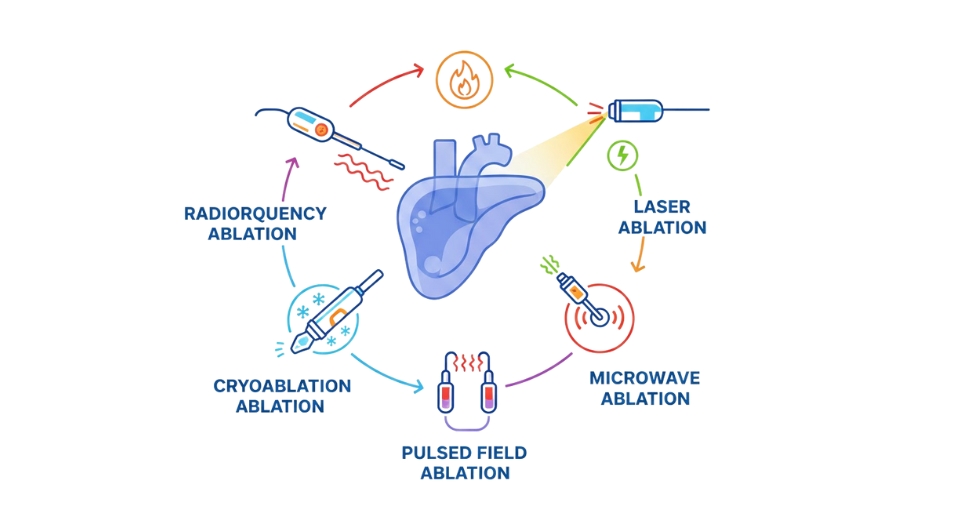

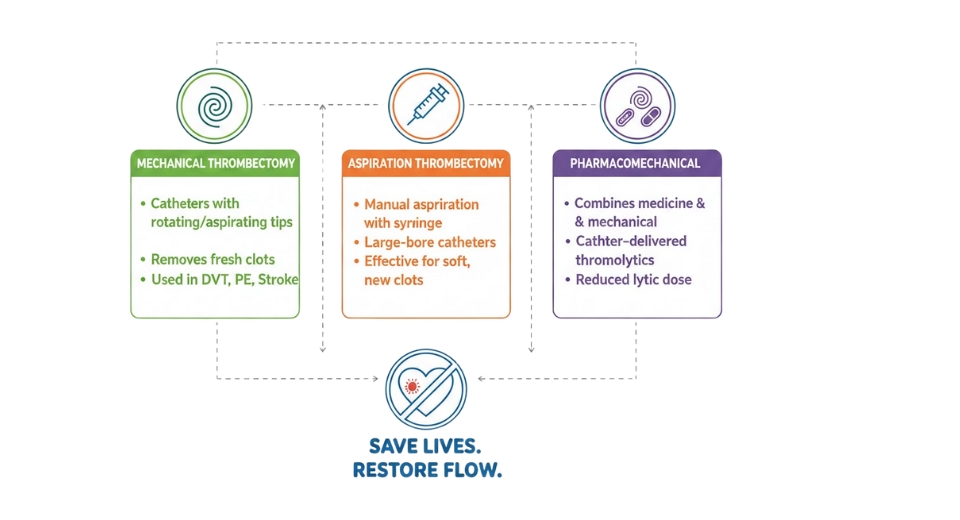
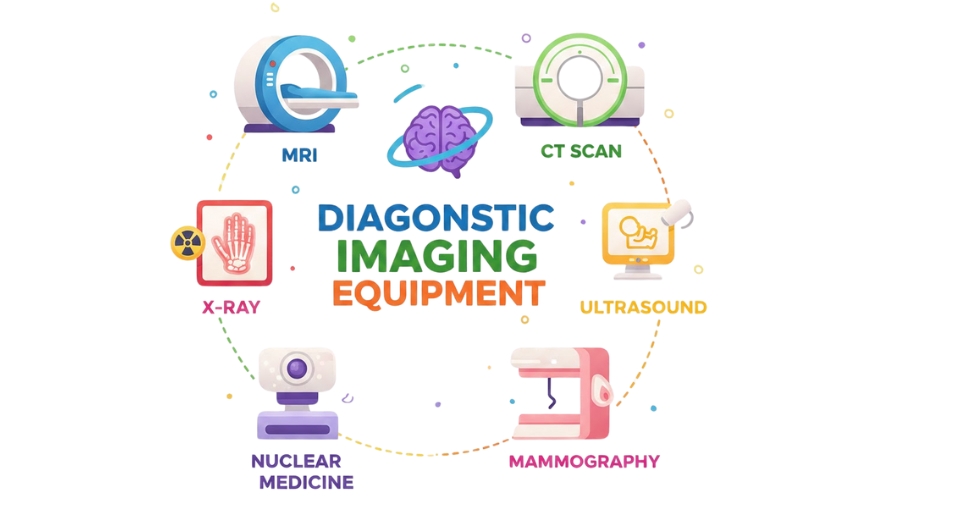

 US: +1 3023308252
US: +1 3023308252






